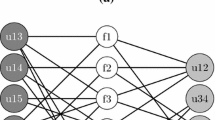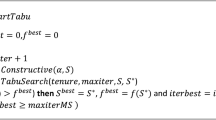Abstract
Minimal cost feature selection plays a crucial role in cost-sensitive learning. It aims to determine a feature subset for minimizing the average total cost by considering the trade-off between test costs and misclassification costs. Recently, a backtracking algorithm has been developed to tackle this problem. Unfortunately, the efficiency of the algorithm for large datasets is often unacceptable. Moreover, the run time of this algorithm significantly increases with the rise of misclassification costs. In this paper, we develop an exponent weighted algorithm for minimal cost feature selection, and the exponent weighted function of feature significance is constructed to increase the efficiency of the algorithm. The exponent weighted function is based on the information entropy, test cost, and a user-specified non-positive exponent. The effectiveness of our algorithm is demonstrated on six UCI datasets with two representative test cost distributions. Compared with the existing backtracking algorithm, the proposed algorithm significantly increases efficiency without being influenced by the misclassification cost setting.




Similar content being viewed by others
Explore related subjects
Discover the latest articles, news and stories from top researchers in related subjects.References
Asuncion A, Newman D (2007) Uci machine learning repository
Bishop CM et al (2006) Pattern recognition and machine learning, vol. 1, Springer, New York
Domingos P, (1999) Metacost: a general method for making classifiers cost-sensitive. In: Proceedings of the fifth ACM SIGKDD international conference on Knowledge discovery and data mining, ACM
Elkan C (2001) The foundations of cost-sensitive learning. In: International joint conference on artificial intelligence, vol. 17, Citeseer
Friedman N, Geiger D, Goldszmidt M (1997) Bayesian network classifiers. Mach Learn 29(2–3):131–163
Goldberg DE et al (1989) Genetic algorithms in search, optimization, and machine learning, vol. 412. Addison-wesley Reading, Menlo Park
Hu Q, Liu J, Yu D (2008) Mixed feature selection based on granulation and approximation. Knowl Based Syst 21(4):294–304
Kira K, Rendell LA (1992) The feature selection problem: traditional methods and a new algorithm. In: AAAI
Min F, He H, Qian Y, Zhu W (2011) Test-cost-sensitive attribute reduction. Inf Sci 181(22):4928–4942
Min F, Liu Q (2009) A hierarchical model for test-cost-sensitive decision systems. Inf Sci 179(14):2442–2452
Min F, Zhu W (2011) Minimal cost attribute reduction through backtracking. In: Database theory and application, bio-science and bio-technology. Springer, New York, pp 100–107
Min F, Zhu W, Zhao H, Pan G, Liu J, Xu Z (2010) Coser: cost-senstive rough sets
Pawlak Z (1982) Rough sets. Int J Comput Inf Sci 11(5):341–356
Pazzani MJ, Merz CJ, Murphy PM, Ali K, Hume T, Brunk C (1994) Reducing misclassification costs. In: ICML, vol. 94
Polkowski L (2013) Rough sets: mathematical foundations. Springer Science & Business, Berlin
Quinlan JR (1986) Induction of decision trees. Mach Learn 1(1):81–106
Rückstieß T, Osendorfer C, van der Smagt P (2013) Minimizing data consumption with sequential online feature selection. Int J Mach Learn Cybernet 4(3):235–243
Specht DF (1990) Probabilistic neural networks. Neural Netw 3(1):109–118
Subrahmanya N, Shin YC (2013) A variational bayesian framework for group feature selection. Int J Mach Learn Cybernet 4(6):609–619
Turney P Cost-sensitive classification: Empirical evaluation of a hybrid genetic decision tree induction algorithm. J Artif Intell Res (JAIR) 2
Wang G, Yu H, Yang D (2002) Decision table reduction based on conditional information entropy. Chin J Comput 25(7):759–766
Wang X, Dong L, Yan J (2012) Maximum ambiguity-based sample selection in fuzzy decision tree induction. IEEE Trans Knowl Data Eng 24(8):1491–1505
Wang X, He Y, Wang D (2013) Non-naive bayesian classifiers for classification problems with continuous attributes
Wang Y, Vassileva J (2003) Bayesian network-based trust model. In: Web intelligence, 2003. WI 2003. Proceedings. IEEE/WIC International Conference on, IEEE
Xie Z, Xu Y (2014) Sparse group lasso based uncertain feature selection. Int J Mach Learn Cybernet 5:201–210
Yao YY, Zhao Y (2008) Attribute reduction in decision-theoretic rough set models. Inf Sci 178(17):3356–3373
Yao YY, Zhao Y, Wang J (2008) On reduct construction algorithms. Trans Comput Sci 2:100–117
Yegnanarayana B (2009) Artificial neural networks. PHI Learning Pvt. Ltd., New Delhi
Yuan Y, Shaw MJ (1995) Induction of fuzzy decision trees. Fuzzy Sets Syst 69(2):125–139
Zhong N, Dong J, Ohsuga S (2001) Using rough sets with heuristics for feature selection. J Intell Inf Syst 16(3):199–214
Acknowledgments
This work is in part supported by the Key Project of Education Department of Fujian Province under Grant No. JA13192, the Zhangzhou Municipal Natural Science Foundation under Grant No. ZZ2013J03, the National Science Foundation of China under Grant Nos. 61379049, 61379089 and 61170128, and the Postgraduate Research Innovation Project of Minnan Normal University under Grant No. YJS201438.
Author information
Authors and Affiliations
Corresponding author
Rights and permissions
About this article
Cite this article
Li, X., Zhao, H. & Zhu, W. An exponent weighted algorithm for minimal cost feature selection. Int. J. Mach. Learn. & Cyber. 7, 689–698 (2016). https://doi.org/10.1007/s13042-014-0279-4
Received:
Accepted:
Published:
Issue Date:
DOI: https://doi.org/10.1007/s13042-014-0279-4




